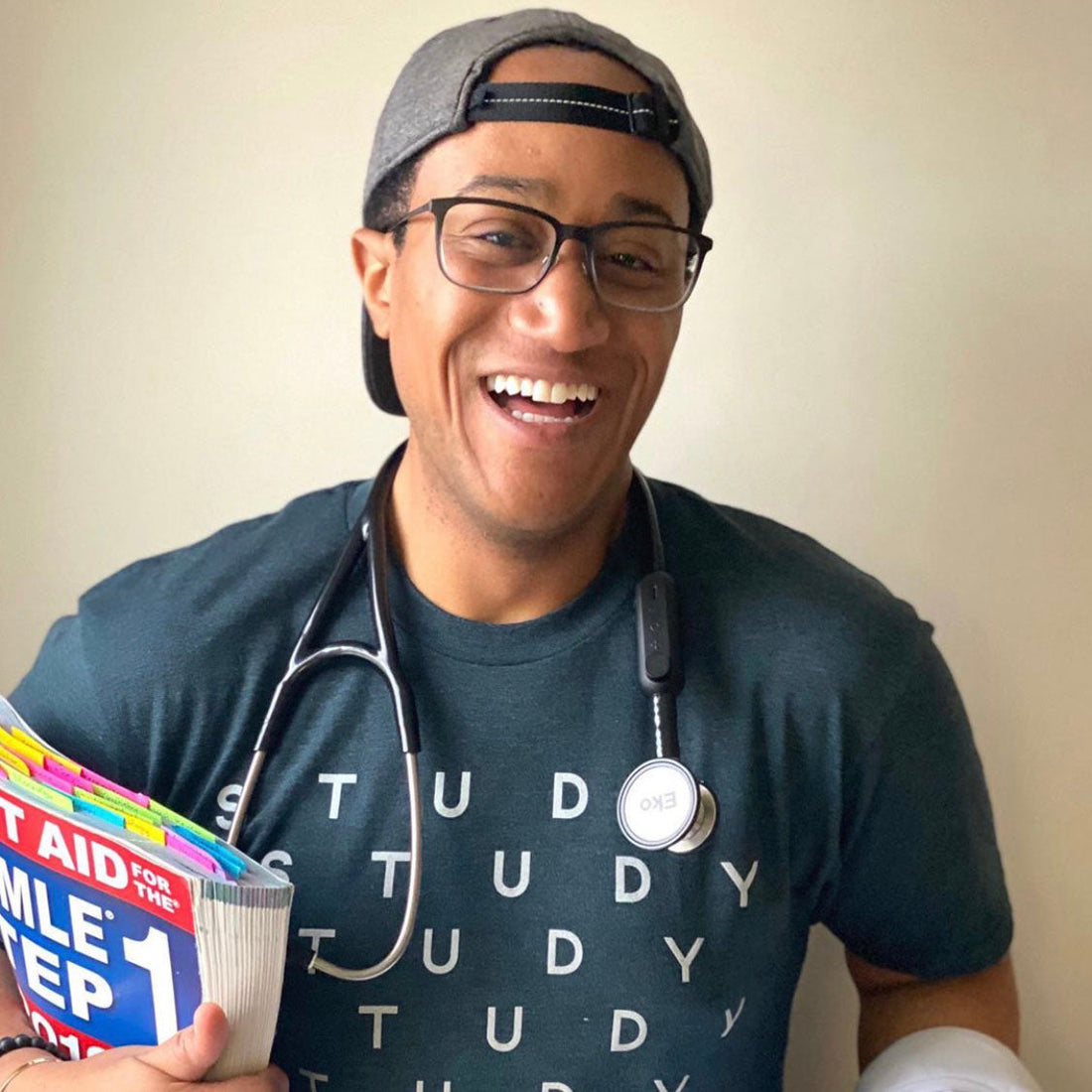Digital Stethoscopes As Learning Tools for Medical Students

With a mother who was both an internal medicine physician and an officer in the Army Reserves, giving back through medicine seemed inevitable for J.P. Scott.
"Helping people when they're at their most vulnerable and their most sick is something I've wanted to do since I was a little kid," he explained.
Now a third-year medical student, Scott relies on Eko stethoscope technology to help him gain confidence and learn.
It's a wonderful, wonderful educational tool. When we're in our practicals or dealing with patients, it's very hard for medical students to be confident. Half the time I think I hear something when I really don't. That's the great thing about the Eko. You can enhance what you're listening to, catching arrhythmia or Atrial flutter, or just basic heart sounds.
With the Eko App that comes standard with the CORE, Scott can also show patients their heart and lung sounds or share recordings with his peers.
"They love it. This is one of those great tools where you still need to know how to use a basic stethoscope — you have to understand the mechanics and physiology behind what you're looking at or listening to. It just allows it to be enhanced and brought into the 21st century."
It's a common challenge for clinicians early in their careers to take classroom knowledge and apply it to real patients. Scott described learning sounds like atrial fibrillation and hypertension from a "Harvey Heart Sounds" mannequin, a standard of many medical programs.
"But that's a perfected sound opposed to what you actually hear in the patient. What I'm able to do just among my classmates, is hear the abnormality from an actual person. I can record it and re-play it. I think every school should have the CORE available for students."
Scott certainly wasn't expecting a pandemic to interrupt his clinical year, but he is more adaptable than most. When Hurricane Maria devastated Puerto Rico, it actually roared through Dominica, the island he was studying on first. Ross University School of Medicine has found a new permanent home in Barbados. Meanwhile, Scott's new temporary home is with his parents, in Maryland. His studies haven't stopped, they've just changed. And he has a tough new instructor.
"This is the one good and bad thing about being quarantined with your mother, who's a physician. She'll say 'hey, let's practice a bit!'"
Scott received his DUO, a device that combines electronic stethoscope and electrocardiogram technology, just before universities across the country switched to distance learning. Without real patients to practice on, his mother has been drilling him on scenarios where the handheld DUO would come in handy.
"For example, she'll say 'if I give the patient a beta blocker, where is that going to hit on this ECG tracing here and here?' I can see myself using it in the same way in actual practice. And I can use that imagery to show the patient how things look and work. I'm excited for it."
That excitement to get back in the clinical setting is growing. While Scott understands it is time to step back and let the career professionals deal with the COVID-19 crisis, it's also disappointing.
"It's a double-edged sword. We're usually the type of people running toward a medical emergency, not away. But I understand, especially seeing how strong and impactful this virus is," Scott said.
For now, he's doing his part to flatten the curve by attending class through Zoom and looking forward to the day he can return to his home away from home.
"That sterile smell you get when you walk into a hospital? I love that smell."
We're proud to highlight J.P. Scott as one of our Eko heroes!